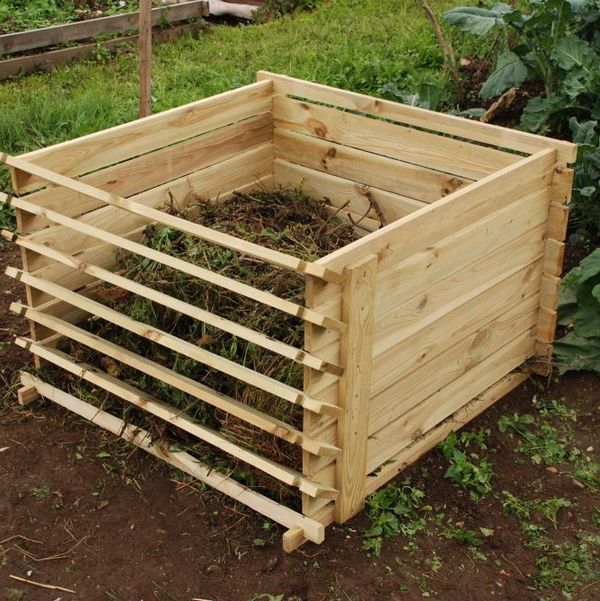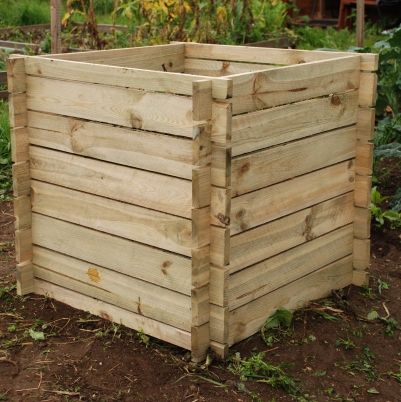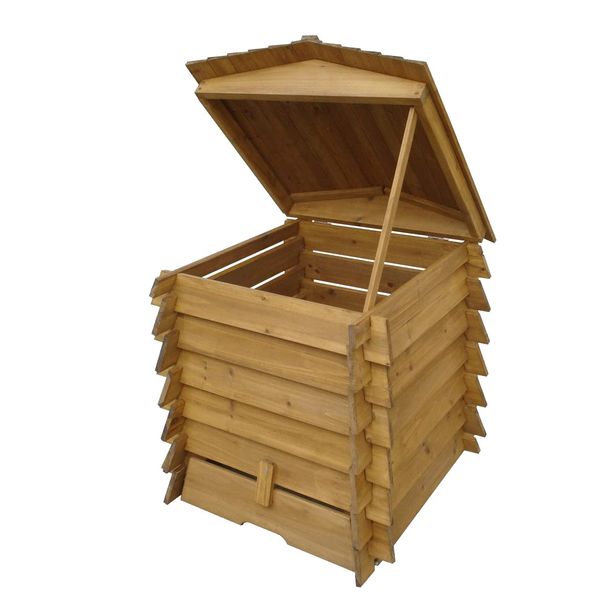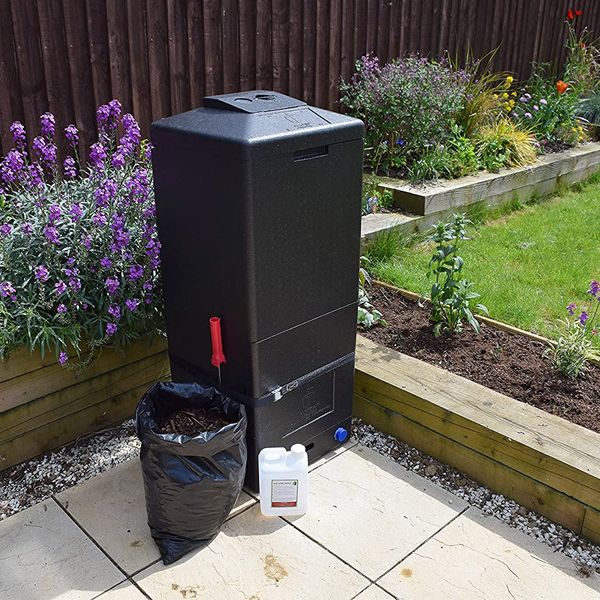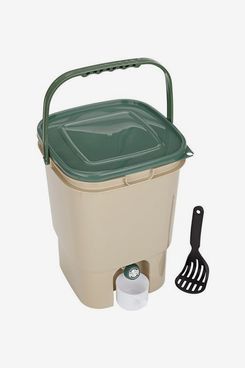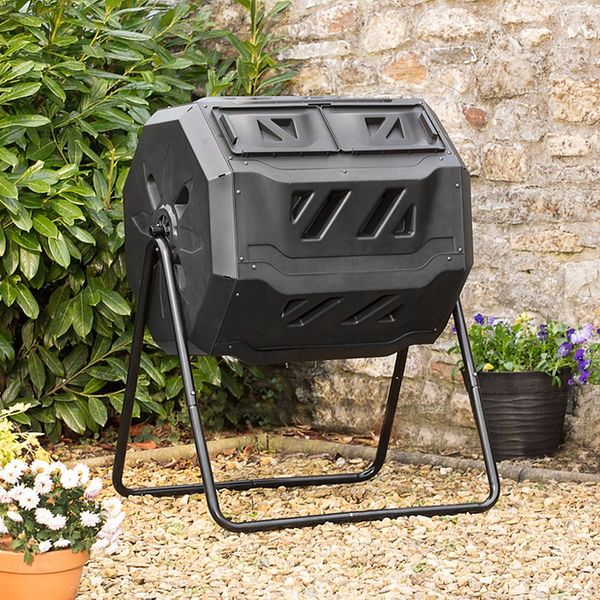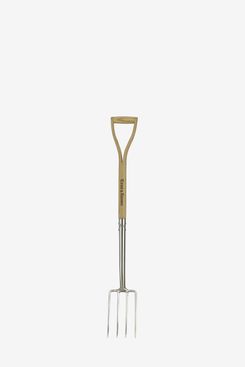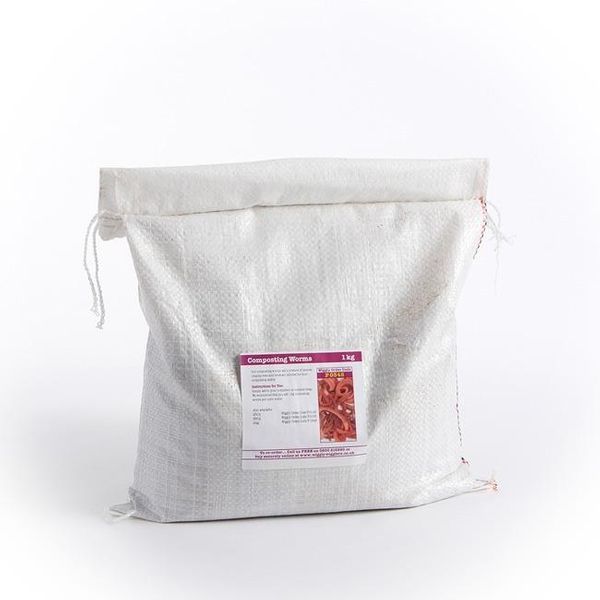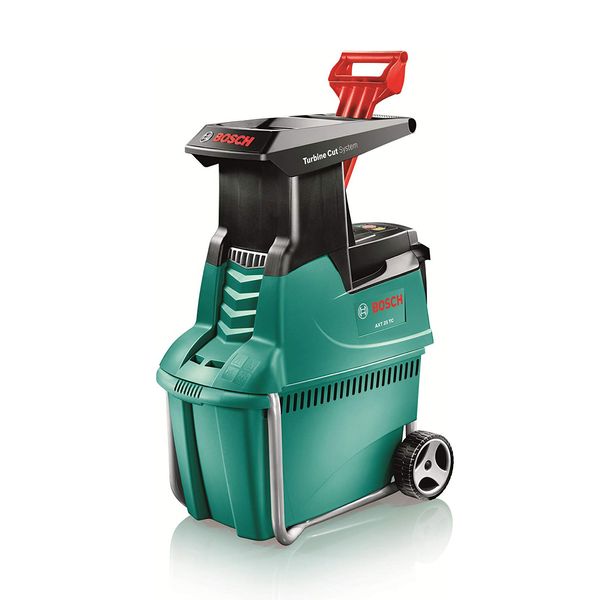
If you’re wondering what to do with all your food waste during lockdown, perhaps it’s time to consider composting. You might find the process confusing (or even a bit daunting) if you’ve never done it before. But at its core, composting is just a way of recycling your food and garden waste. According to the Royal Horticultural Society, composting is better for the environment than using your council’s waste-collection services (which rely on heavy transport usage) and provides nutrient-rich soil that can be used in your garden or balcony. “Sometimes starting a compost is considered a hard-to-do job, but all you need to know is the optimal balance between the components and the right ingredients,” says Gena Lorraine, a gardening expert for cleaning and maintenance company Fantastic Services.
Ann-Marie Powell, an award-winning garden designer, says anyone can compost — even people with limited space. “It’s just so satisfying, whether you have a big garden or you just look after a few houseplants, the way that you’re constantly feeding something and reaping the benefits.”
So we spoke to nine experts, including professional gardeners, landscapers, authors, and journalists, to find out what essential tools and equipment you needed to get into composting. Read on for the best compost bins for any sized space, expert-recommended tools, and whether or not you should buy worms.
What food and garden waste can I compost?
Before we go into the tools needed for composting, Lorraine says the most important thing to know is what not to compost. “No diseased plants, as they can spread disease wherever the compost is applied. No meat, fish, or dairy, as they can overheat the compost and attract meat-eating animals. And any artificial materials, like plastic, metal, and glass. I’d also advise against cat and dog droppings.”
Our experts told us that the balance should be 50 percent “brown waste,” meaning paper, cardboard, or anything “inanimate,” and 50 percent food waste. Other than the no-go items above, almost anything else is compostable, though: leaves, herbs, vegetable scraps, coffee grounds, tea bags — even old wine and wine corks can go in.
Powell also says to avoid citrus fruits like lemon or limes, as the acidity will react with the pH levels of the soil, and any glossy paper, like from magazines or on envelopes, should be avoided, too.
Best compost bins
Most composters will start with a composting bin. But Jack Wallington, a landscape and garden designer who writes for the Telegraph, points out that, at its most basic, a compost pile can be started directly onto the ground. “Sometimes, the mechanics of composting can seem quite complicated, but it can literally just be a pile of plant waste on the ground,” he explains. “I’ve got an allotment, and one of the key things for me with composting is to make sure the compost pile goes directly onto the soil. When you do this, it means the worms and bacteria and fungi from the soil come up into your compost.”
However, this is harder for people with small gardens. As an alternative, he says all you need for a basic compost pile are several bits of wood nailed or screwed in place — either from a supplier like B&Q or by using reclaimed wood palettes. “But in London, it’s quite hard to get hold of pallets. So I bought mine from Primrose — at the time, I didn’t have a car, so I got it delivered straight to my allotment.”
Best compost bin with lid
If you are worried about smells, you might want to consider an option with a lid, although Wallington says the smell of your compost will depend on what you put in it. “Plants from the cabbage family, the brassicas, are going to stink. If you just put on things like normal shrubs, leaves, and branches, it probably will just smell like compost.”
For reducing any potential smells, our experts suggested a beehive-style compost bin, which would be particularly helpful in a small garden. We like this one.
Best hot composting bin
Powell says a more modern alternative is “hot” composting. “It is 32 times faster than the normal way because of the heat that’s trapped in the bin.” The goal is to try and heat the bin to 60 degrees; “the hotter the bin, the quicker it will compost your waste.”
Both Powell and Camilla Klich, co-founder of Wolves Lane Flower Company, recommend the hotbin. “It comes with a large probe-like thermometer for taking the temperature of your compost, and when you lift the lid off it lets out a bit whoosh of steam,” says Powell. Klich, whose company composts any waste on their grounds in Haringey, says this is designed for smaller spaces. “You can make compost from scratch, without the aid of a hot composter, but you need space — a lot of it. This is a good alternative.” At 100L, it’s a third of the size of Primrose’s smallest outdoor bin.
Best composter for balconies
If you have a balcony (or just a small patio), you’ll likely not have room for a large compost bin. Thankfully there are options for smaller spaces. Powell told us about Bokashi composting, which originated in Japan, and is a mixture of composting and fermentation. “These are very trendy at the moment,” she says.
The name comes from Bokashi bran, which is included in each order, and is sprinkled over your garden and food waste. It contains lactobacillus, a probiotic starter culture which breaks down waste much faster than if it were left alone (this method effectively pickles your food waste). “During lockdown, I redid my garden from scratch, since I couldn’t see my clients, and I completely reorganised my composting, which included my compost bin,” Powell says. “The tap at the bottom allows you to drain liquid fertiliser, which can be used in plants, and it’s completely sealed, so there’s no smell. If you’re on a balcony, your neighbors won’t even know you’re making compost.”
Best rotating composter
For people who want to speed up the process even further, one of our experts recommended a rotating composter. Gabi Reid, owner of Gabriel’s Garden, says: “Rotators make compost quicker than a conventional box system due to their unique tumbling action, which effectively mixes aerobic bacteria, thus speeding up the composting process.”
Best garden fork for composting
Rotators also cut out the need to use a garden fork or turner to manually turn over your compost. But, if you’re in the market for one, Matt Jordan, Digital Product Manager at (garden buildings supplier) GBC Group suggests “Turning the heap once a month or once every couple of weeks, in order to introduce air and improve the composting process.”
When it comes to which fork is best, Wallington says, “wooden handle border forks are smaller and easier to use,” than digging forks. These typically have smaller gaps between the tines (as they are designed for smaller spaces).
Best worms for composting
If you are hot composting (or using any self-contained compost bin) and your compost is not directly over the earth, then you might want to introduce worms since they won’t be able to enter your compost naturally. “The main difference between using worms and not using them,” Powell explains, “is using worms makes your compost richer, it speeds up the process, and it’s also just really fun.”
While most of our experts suggested buying locally where possible, Powell told us about Wiggly Wigglers, a Herefordshire-based farm that sells natural garden supplies, including live worms. “They’re not pets, but you have to look after them a little bit, I’m quite obsessed with them,” she says. “The worms produce this liquid compost that will collect in the tray at the bottom of your hotbin, and you can water it down and put it directly on your plants — whether edibles or ornamentals. It’s a compact sort of cycle of life that goes on which I think a lot of people, including myself, just love.”
According to Powell, 1kg contains about 1,600-2,000 worms. They include a mixture of species (reds and dendras, two kinds which can tolerate a wide range of temperatures). “Because they reproduce, you only need to buy them once,” Powell says.
Best garden shredder for composting
If you work with a lot of garden waste, then both Reid and Klich say you should consider a garden shredder. Reid swears by the Bosch AXT Turbine shredder. “It is my most valuable tool when it comes to composting, it cuts everything up into small pieces so that then can break down quickly in the compost bins, speeding up the process and helping to make great compost to put back on the garden. I put in almost all my floristry waste, garden waste, and hedge cuttings.”
The Strategist UK is designed to surface the most useful, expert recommendations for things to buy across the vast e-commerce landscape. Read about who we are and what we do here. Our editors update links when possible, but note that deals can expire and all prices are subject to change.
